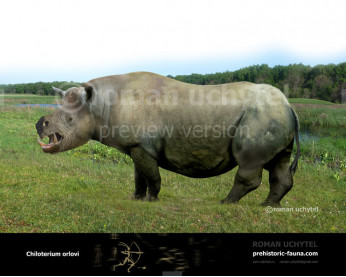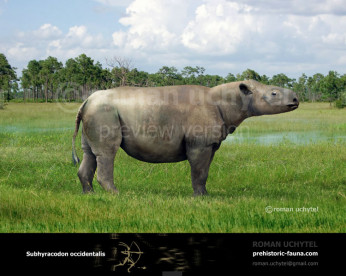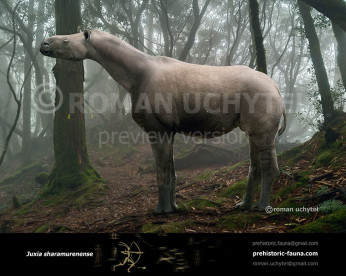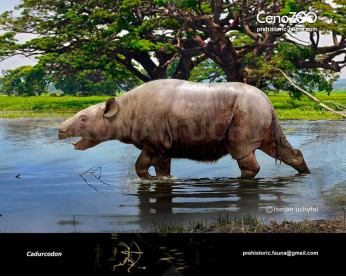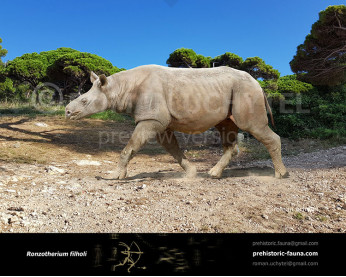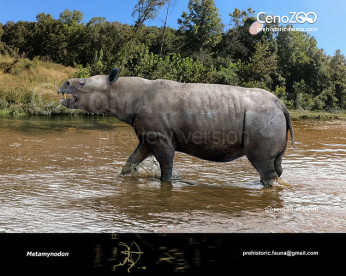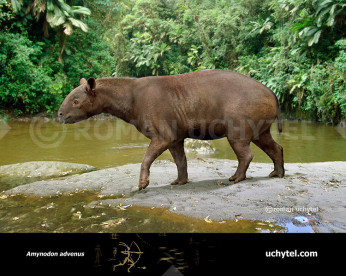Aceratherium
202121202121Aceratherium (†Aceratherium (Kaup, 1832))
Order: Perissodactyla
Family: Rhinocerotidae
Subfamily: †Aceratheriinae
Time period: the Miocene epoch (Africa, Europe and Asia)
Size: 2.3 m in length, 1.2 m in height, 1000 kg of weight
Typical representative: †Aceratherium incisivum Cuvier, 1822
Aceratherium is an extinct genus of rhinocerotid of the subfamily Aceratheriinae that lived in Africa and Eurasia during the Miocene.
Traditionally, many species have been referred to Aceratherium on the basis of them being hornless, turning the genus into a wastebasket. Revisions over the years have removed most species to the point that there are now only three valid species generally recognized (A. incisivum, A. depereti, and A. porpani).
Aceratherium reached 2.3 m in length, a height of about 120 cm and a weight of nearly 1 ton. Its brachyodont dentition suggests it was a browser which fed on leaves and soft vegetables, though more recent analyses suggest that A. incisivum was actually a grazer. It had fairly long limbs compared to other Aceratheriinae, and was proportioned similar to a tapir. Males had tusk-like incisors that were much larger than those of the females.
Aceratherium (†Aceratherium (Kaup, 1832))
Order: Perissodactyla
Family: Rhinocerotidae
Subfamily: †Aceratheriinae
Time period: the Miocene epoch (Africa, Europe and Asia)
Size: 2.3 m in length, 1.2 m in height, 1000 kg of weight
Typical representative: †Aceratherium incisivum Cuvier, 1822
Aceratherium is an extinct genus of rhinocerotid of the subfamily Aceratheriinae that lived in Africa and Eurasia during the Miocene.
Traditionally, many species have been referred to Aceratherium on the basis of them being hornless, turning the genus into a wastebasket. Revisions over the years have removed most species to the point that there are now only three valid species generally recognized (A. incisivum, A. depereti, and A. porpani).
Aceratherium reached 2.3 m in length, a height of about 120 cm and a weight of nearly 1 ton. Its brachyodont dentition suggests it was a browser which fed on leaves and soft vegetables, though more recent analyses suggest that A. incisivum was actually a grazer. It had fairly long limbs compared to other Aceratheriinae, and was proportioned similar to a tapir. Males had tusk-like incisors that were much larger than those of the females.

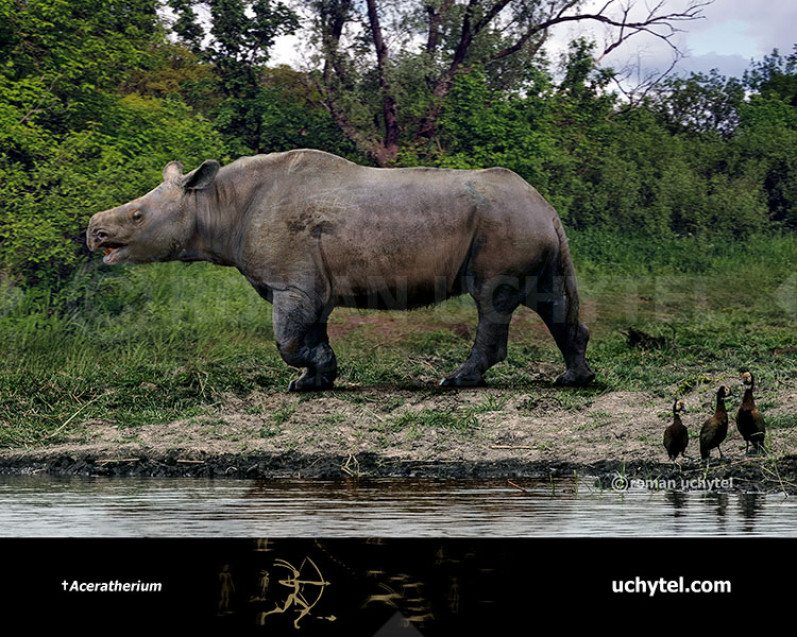
-797x638.jpg)
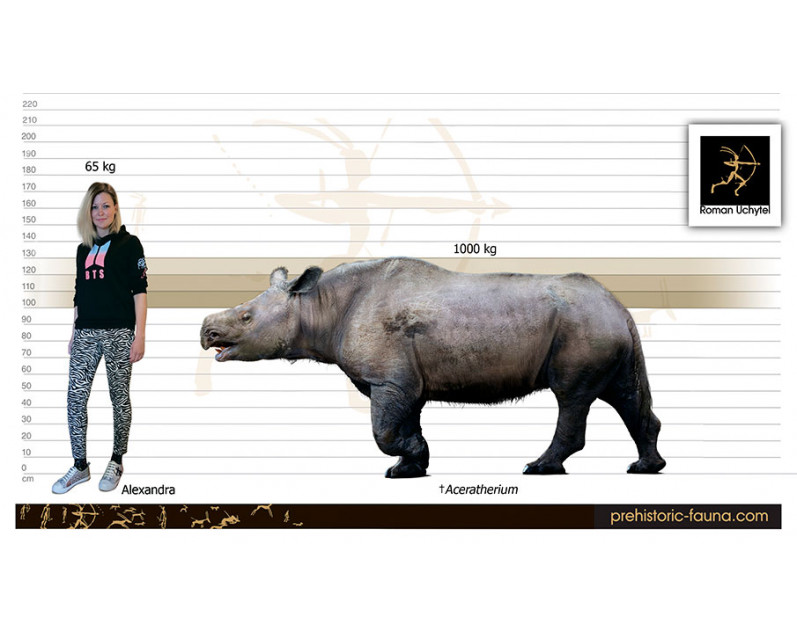

-70x56.jpg)

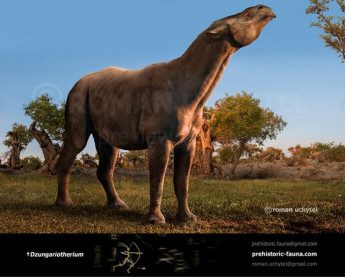
-346x277.jpg)
